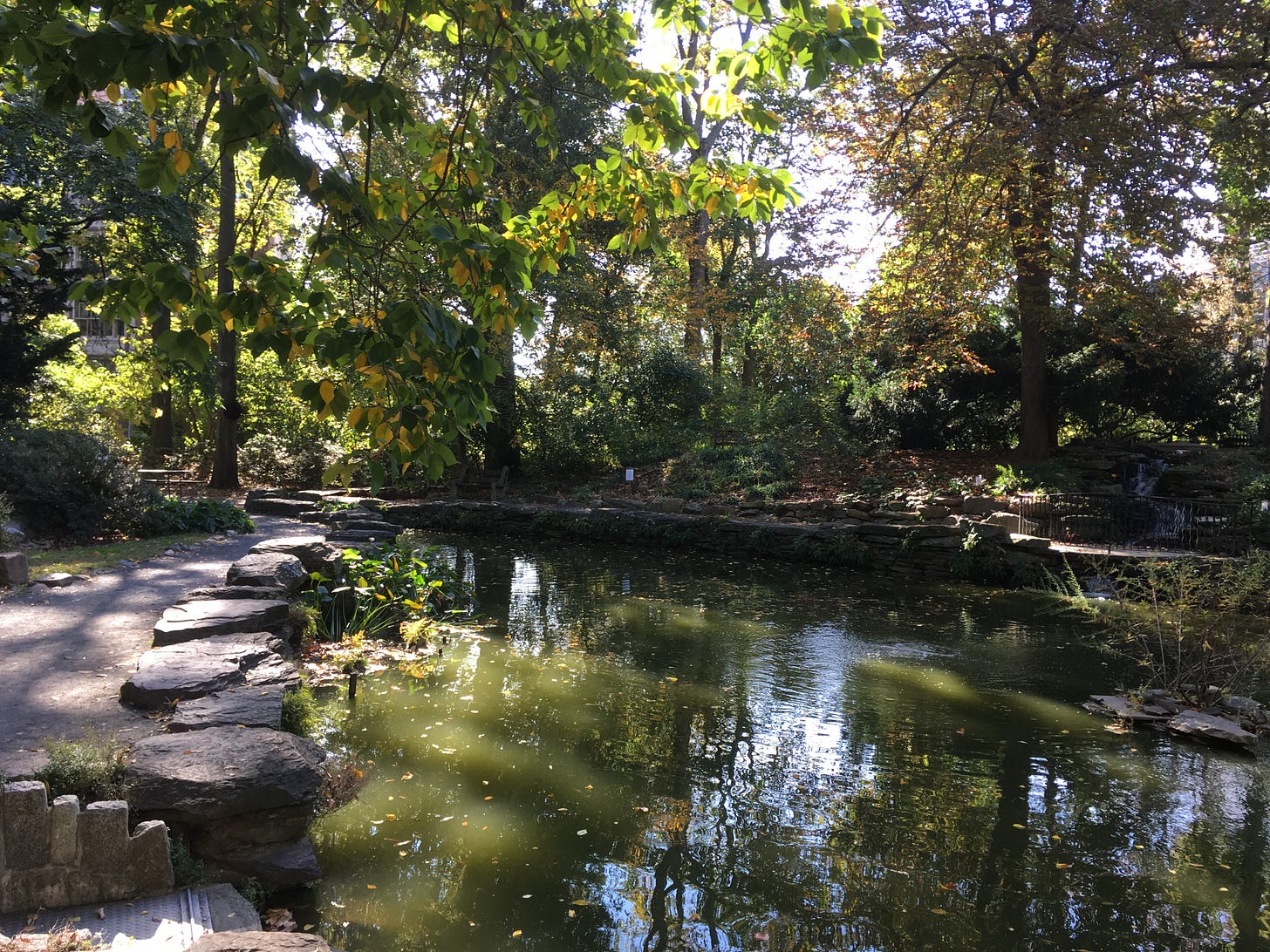Fish History matters for everyone
I am your personal natural historian
There’s a lot of good in this world worth fighting for. I started Fish History because I was unhappy with the state of professional science and wanted to do something about it. But today, as I sit on a glorious July day looking out over a lake, I want to focus on the good we can fight for. When I was a student at the University of Pennsylvania in Philadelphia, I struggled with coursework, isolation, and self-doubt. I was in a completely alien world to where I grew up and had to work as hard as I could to keep up in classes. A small park, the former botanical garden, was my sanctuary. My walks reminded me why the struggle was worth it. Life on Earth is glorious. All living things great and small are worthy of wonder and curiosity. Every time I connect with nature, I am reminded why I became a scientist.
My job is to serve society, to use my knowledge and skills to help people. Scientific knowledge is important for everyone. Our health, welfare, and wealth depend on natural systems. Everything, from the food we eat, the air we breathe, and the water we drink, depends on nature. Science is the vehicle to study and predict nature, as both a living body of knowledge and a way of understanding the world around us. Through science we can protect nature, create wellbeing for ourselves and our fellow humans, and enrich the lives of all. Engaging with nature and science, exploring our natural curiosity, and strengthening our ability to think critically is crucial for healthy, happy humans. I feel that there is a canyon between scientists and the society we are meant to serve. Complicated vocabulary, stale writing, paywalled publications that were funded by taxpayer dollars, and increasingly artificially generated prose divides science from the people who need it the most. Fish History will be your conduit, connecting you to nature and natural history via high quality science. No ads, no artificially generated crap, just the lessons we can learn from science. Let me be your personal guide, from the ancient history of life to the present, and even the future of our planet. I will integrate knowledge from across scientific disciplines at all scales, from the smallest details of fish anatomy to the entire Earth. When you support Fish History, you support science that serves people first. If you are already a subscriber, I am deeply grateful for your support. If not, I hope you will join us and make me your personal natural historian.
Above: The ‘Biopond"‘, aka the James G. Kaskey Memorial Park at the University of Pennsylvania on a beautiful fall day. Photo by Jack Stack.


